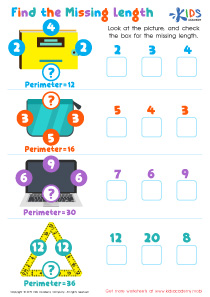Number comprehension Easy Subtraction Worksheets for Ages 3-4
6 filtered results
-
From - To
Discover our engaging "Number Comprehension Easy Subtraction Worksheets" designed specifically for children aged 3-4! These fun and interactive worksheets introduce young learners to basic subtraction concepts, promoting early math skills through colorful illustrations and playful activities. Each printable sheet is crafted to enhance number recognition and understanding while fostering a positive learning environment. Children will enjoy practicing subtraction in a simple and intuitive way, setting the foundation for future mathematical abilities. Perfect for parents and educators, these worksheets make learning subtraction exciting and effective. Start your child’s math journey today with our easy and enjoyable subtraction resources!
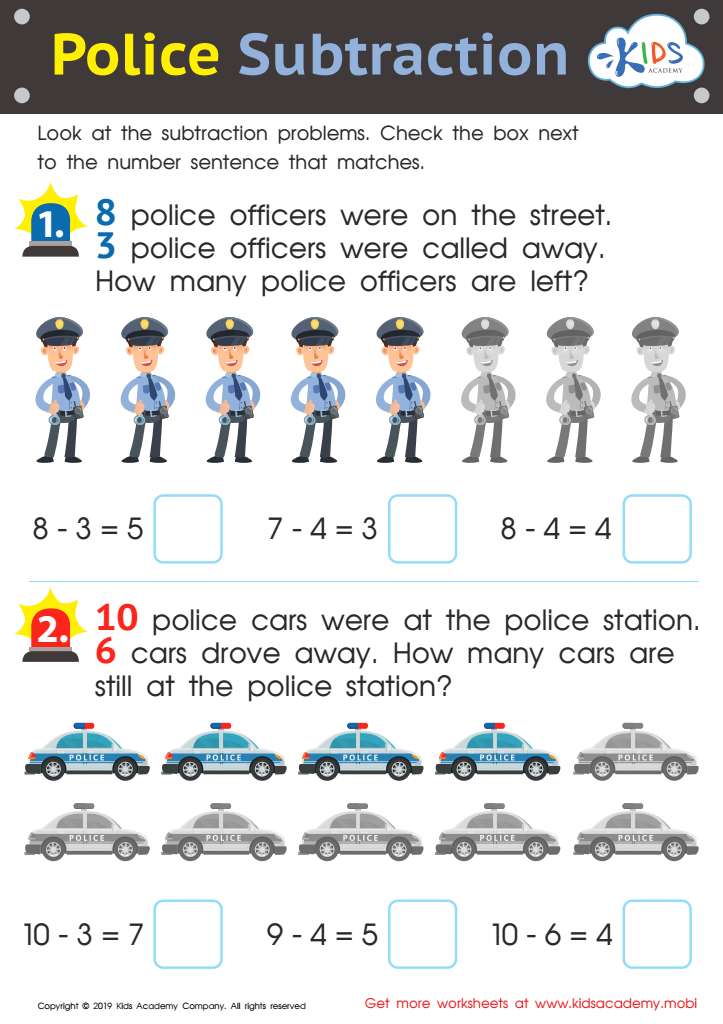

Police Subtraction Worksheet
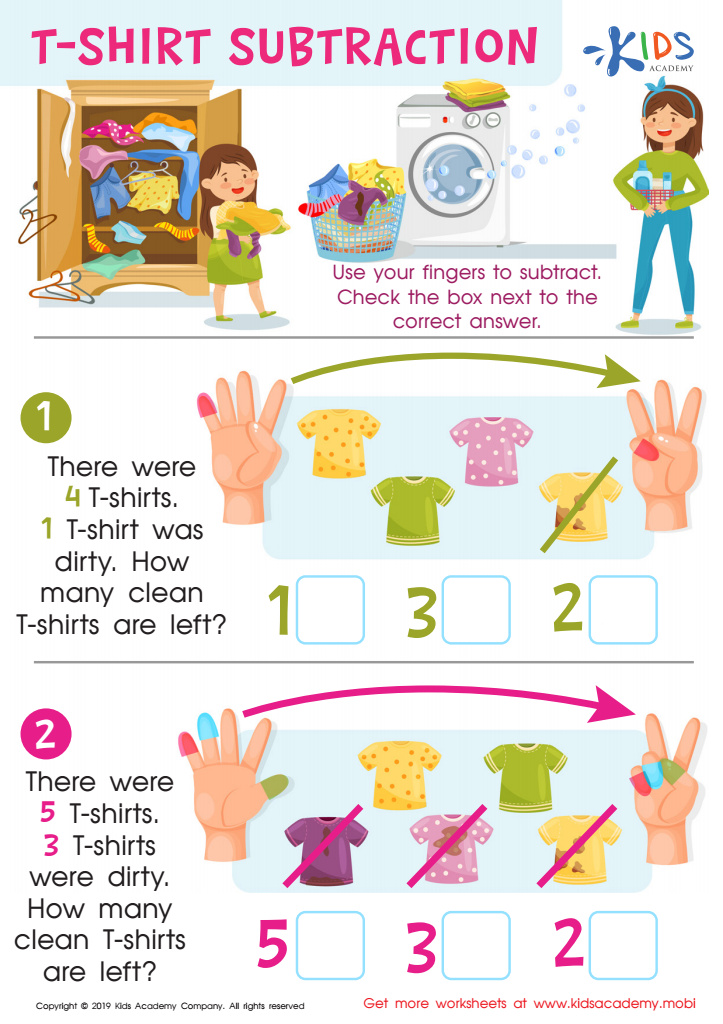

T-shirt Subtraction Worksheet
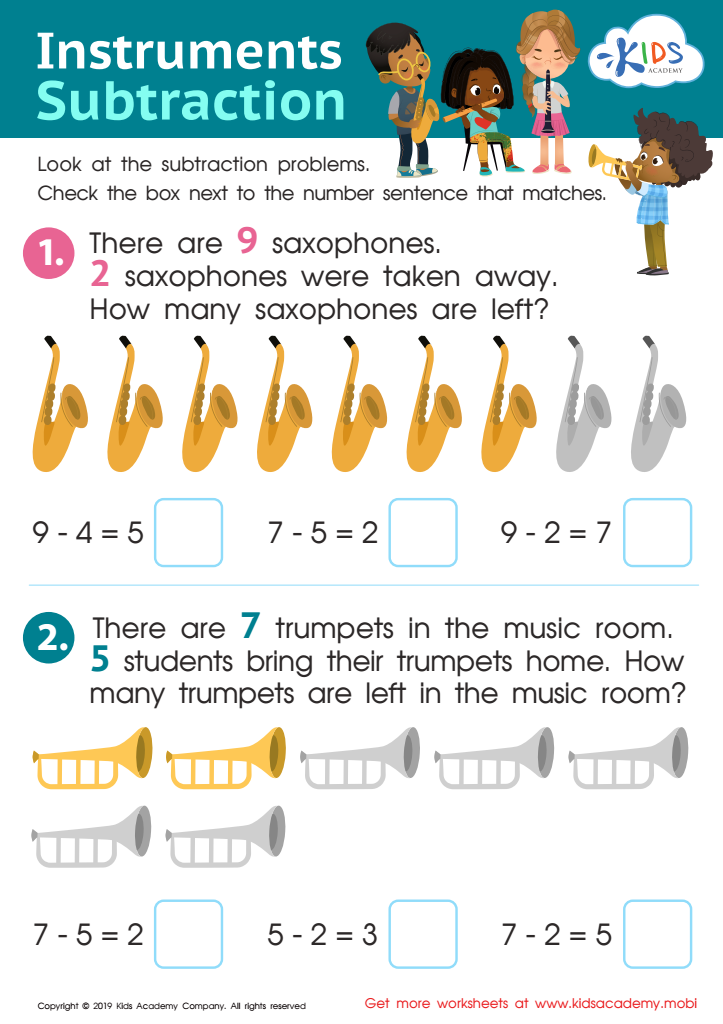

Instrument Subtraction Worksheet
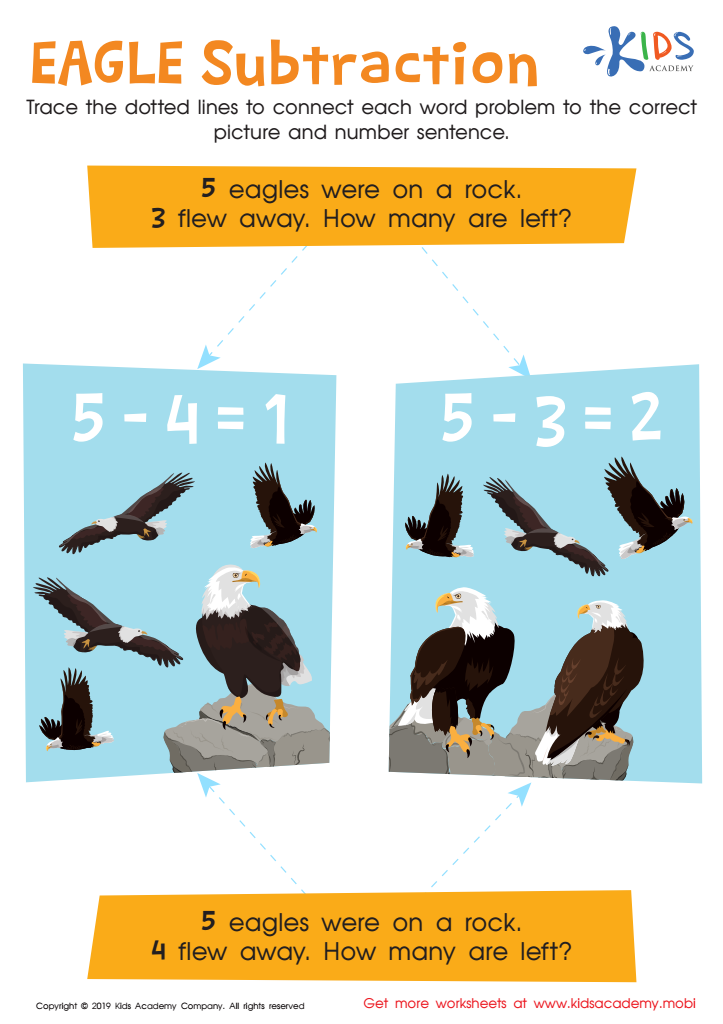

Eagle Subtraction Worksheet
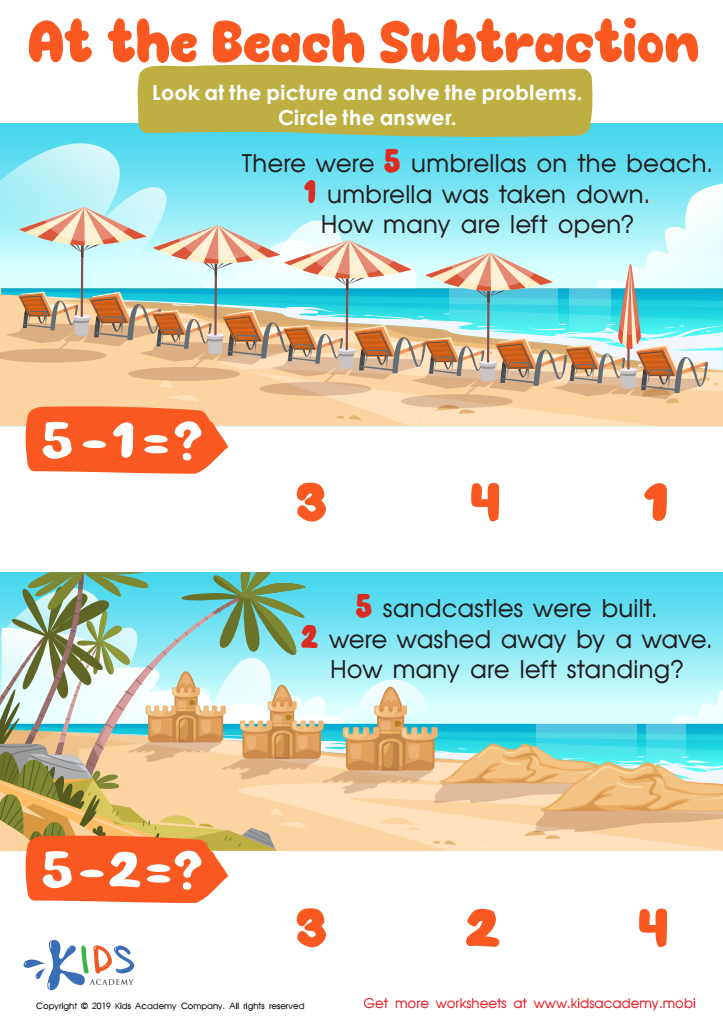

At the Beach Subtraction Worksheet
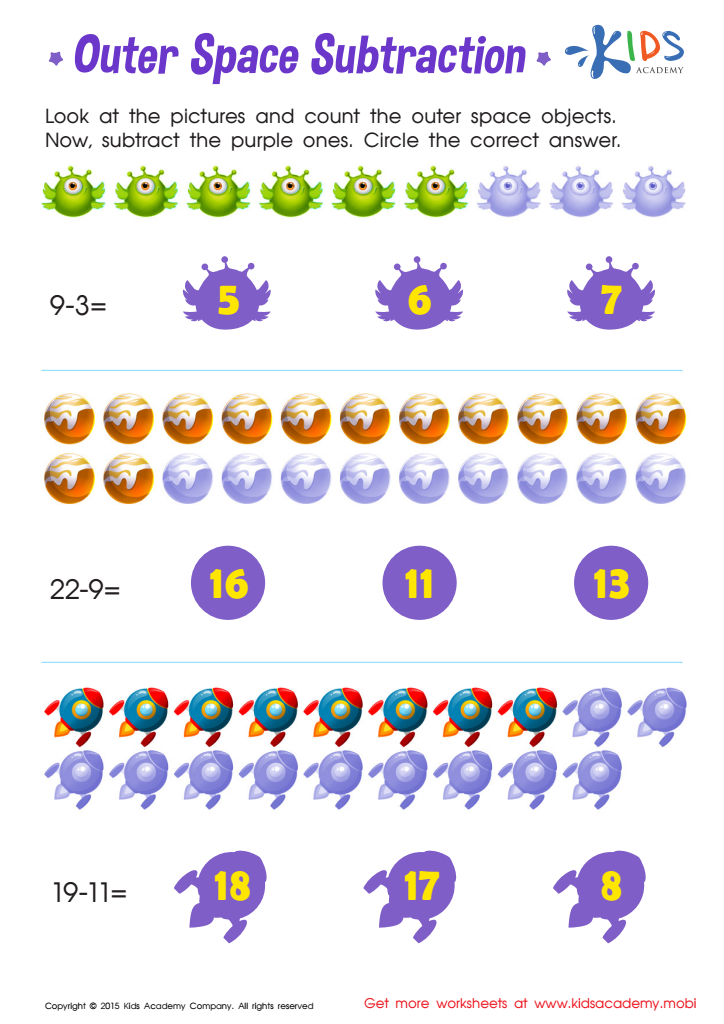

Outer Space Substraction Worksheet
Parents and teachers should care about number comprehension and easy subtraction for ages 3-4 because this foundational skill sets the stage for a child's future mathematical understanding. At this age, children are highly receptive to learning through play and exploration, making it the perfect time to introduce basic math concepts like subtraction. Early number comprehension fosters critical thinking and problem-solving abilities, which are essential life skills.
Engaging children with easy subtraction promotes cognitive development and helps improve their attention skills. Recognizing patterns, counting objects, and understanding the concept of "taking away" are interactive ways to develop their logical reasoning. Additionally, when parents and teachers integrate subtraction into everyday activities, children learn to relate math to real-life situations, enhancing their engagement and retention.
Developing numerical skills early also lays the groundwork for academic success, as early struggles or gaps in math can lead to difficulties in later years. Furthermore, a positive attitude towards math nurtured at this stage can cultivate a lifelong love of learning. Ultimately, laying this groundwork helps children feel confident in their abilities, making them ready to tackle more complex mathematical concepts as they grow.
 Assign to My Students
Assign to My Students











